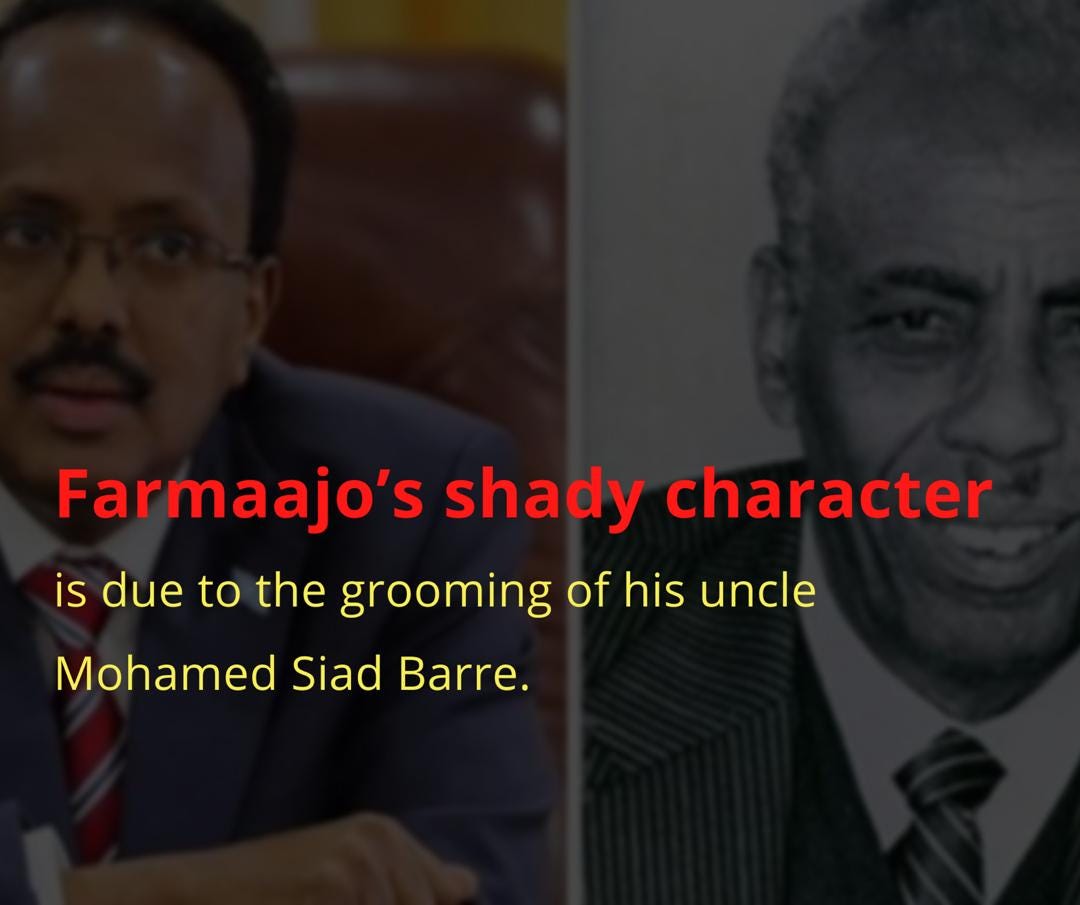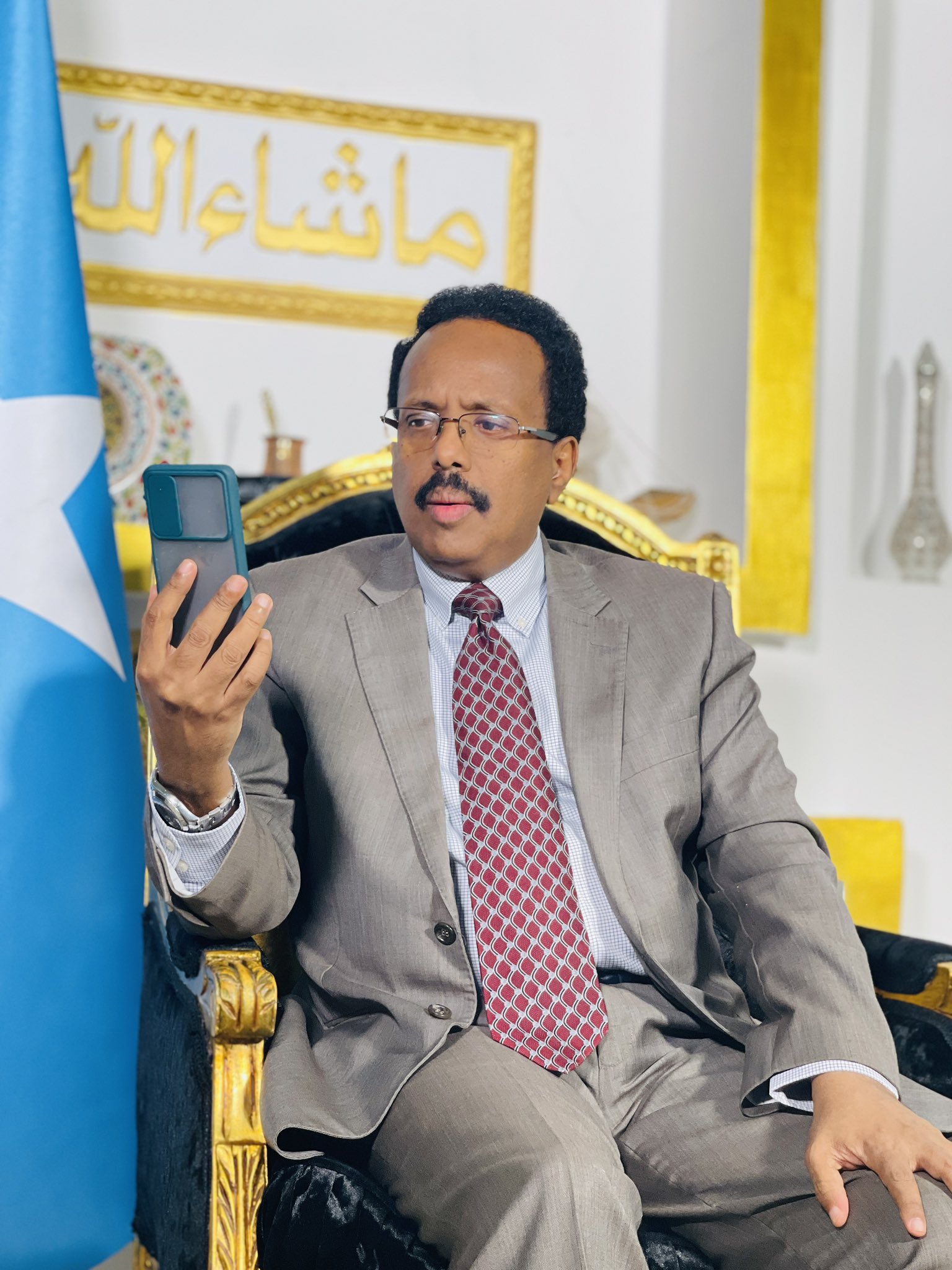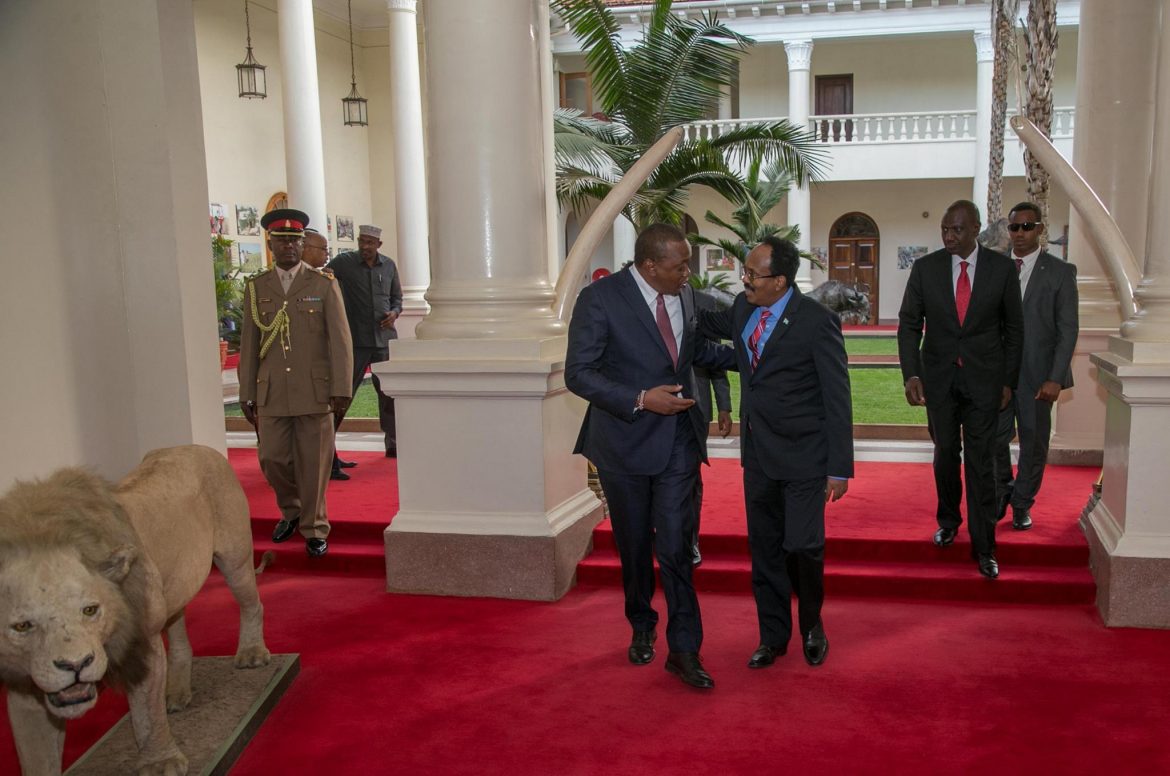Mohamed Abdullahi Farmajo - Somalia's President Mohamed Abdullahi Mohamed, commonly known by his nickname Farmajo, attends a special assembly to discuss abandoning the two-year extension of his presidential term and in Mogadishu, Somalia, May 1. Villa requests immediate elections to ease political tensions in Hargeisa. 2021. (AFP photo)
Somalia is trying to calm the country's worst political crisis in years as President Mohamed Abdullahi Mohamed, commonly known by his nickname Farmajo, on Saturday asked the prime minister to hold elections as soon as possible. Told.
Mohamed Abdullahi Farmajo

In a brief speech to be broadcast live to parliament, Farmazzo touted a policy adopted earlier this month that extended his term by two years.
Somalia: Mohamed Abdullahi \
"We have decided to seek a solution through dialogue and avoid starting violence in favor of those trading on the blood of the people," he said.
Deadly fighting broke out between the armed rivals in the capital Mogadishu after Farmajo failed to hold elections before his term expired in February.
The international community has repeatedly called for elections and threatened sanctions against the nation of 15 million, which is divided among five member states.
In his speech, Farmajo returned to an agreement with member states to hold indirect elections in September, in which special representatives elected by Somalia's clan elders elect parliamentarians, who in turn elect the president.
Somalia's New President To Take Office Formally On Monday
"I want to make it clear that Prime Minister Rubel Mohamed Hussein will lead the preparation and implementation of the election and the security of the election," he said.
Earlier this week, the President, in a much-anticipated address to the nation, sought to ease tensions by having an "urgent discussion" with political players.
"The Council urges Prime Minister Roble to take full control of the election process and national security," the statement said.

You can unsubscribe at any time. By signing up, you agree to our Terms of Use and Privacy Policy. This site is protected by reCAPTCHA and Google's Privacy Policy and Terms of Service apply. Somalia's President Mohamed Abdullahi Mohamed speaks during a news conference following the Somalia Summit in London, UK, May 11, 2017. (AP Photo)
As Somalia's President 'farmajo' Is Inaugurated Today, What Are The Challenges Facing Him ?
On 25 April, violence broke out in Mogadishu, Somalia, between various units of the Somali army, police and mysterious militias. For two more days, clashes were reported in various parts of the city, causing residents to flee their homes. Media reports and photographs are reminiscent of the 1991 civil war. Somalia was once again on the brink of violence.
In a bid to quell political tensions in Somalia and violence in Mogadishu, President Mohamed Abdullahi Mohamed, also known as Farmajo, addressed the nation and asked the Somali Parliament to revoke the extension of his two-year term. requested, which was first approved by the Parliament. The President's balanced remarks brought back normalcy in the capital.
Nevertheless, Somalia's political and electoral crisis, recent violence in Mogadishu, and rifts in the Somali military and police point to structural challenges undermining Somalia's nation-building efforts.
The political crisis and violence has made Farmajo politically vulnerable. Has Pharmajo Finally Failed Politically in Somalia? And what are the structural challenges that await whoever wins the next Somali election?
File:mohamed Abdullahi Farmajo (landscape Crop).jpg
Farmajo, a dual Somali-American citizen who has been a New York state bureaucrat since being elected in 2017, has espoused nationalistic policies and discourse – which resonate with the majority of Somalis.
After three decades of total-based violence alongside al-Shabaab terrorism, Somalis yearn for peace, good governance and stability.
Farmajo, whose brief tenure as the country's prime minister was praised, was the perfect candidate to stabilize Somalia.

In fact, his government carried out several administrative and economic reforms. The Somali Army grew in numbers with the establishment of lethal units such as the Gorgor and Harmakad Brigades.
Who Is Somalia's New President?
Beyond that, the president kept a low profile. He made few speeches and avoided clan-based political discourse or engaging in criticisms of the opposition.
More significantly, the president began efforts at centralization. The Federal States of Somalia, which operate as semi-independent states, pose a major challenge in building a functioning and stable Somali state. The current protracted electoral crisis resulted from Puntland and Jubaland's opposition to Farmajo's centralization policy.
Puntland and Jubaland have their own reservations about a strong federal government in Mogadishu. Indeed, Somalia - given its experience of civil war and clan-based politics - does not need a totalitarian government.
The Somali federal system has no clear political hierarchy, and this has exacerbated political differences. With the violence in Mogadishu, Farmajo's idealistic politics and centralization efforts have come face to face with the realities of Somalia's clan-based politics and federalism.
President Of Somalia On Working Visit In Eritrea
Farmajo's political downfall is a victory for Puntland and Jubaland. Both Puntland and Jubaland politically opposed and challenged former Somali presidents.
The political elite in Garoway and Kismayo have always been suspicious of the federal government in Mogadishu. He seems to have a keen understanding of Somalia's clan-based politics, which has not taken into account Farmajo's idealistic Somali nationalism.
For the political elite of Garowe and Kismayo, Mogadishu is not only the center of the Federal Government of Somalia (FGS): it has become the hegemonic political center of a particular clan or clans. Together, Jubaland and Puntland are keen to secure their political autonomy and interests against Mogadishu.

Farmajo's efforts to centralize and strengthen the federal government compared to the federated states were seen as a threat in Puntland and Jubaland. The electoral crisis that has been going on for the past year is a "war" between the idealism of Farmajo and the realism of Puntland.
Farmaajo Inaugurated As The Ninth President Of Somalia
Now that the army and police in Mogadishu have been divided along clan lines, Puntland and Jubaland are telling Farmajo: "Look, there is no functioning state in Mogadishu, to hell with your centralisation."
Yet, from a sociological perspective, Somalia has structural problems that hinder its state-building processes. The realities won't go away when Pharmazzo leaves office, which could happen very soon.
The biggest structural challenge is the federal system of government in Somalia. The question is not whether federalism is the ultimate solution, the question is how to implement it.
Is Federalism Necessary to Partition Somalia with Clan-Based Federal States? Is federalism decentralization, sharing, or decentralization of governance, or does the federal government cede its political sovereignty to the states?
Somali President Farmajo Strips Pm Roble Of Executive Power
These contradictions must be resolved by the Somali political elite if federalism is to work in Somalia, otherwise secession, rogue states and division will always be a threat to Somali state and political stability.
Somalia also needs a unified national army and police. The recent violence in Mogadishu is an indication that the Somali security sector is very weak and fragile. A well-trained army and police inspired by national values and principles and free from clan politics is also a necessity. No state can function without a unified and disciplined national army.
Finally, Somalia needs reconciliation talks at the national level. The pain, trauma and grievances of the civil war still linger on the Somali political body.

The basis for the mistrust and disagreement of the political elite is the unresolved painful legacy of the Civil War. The time has come to heal the Somali people through grassroots dialogue.
Somalia Leaders Lock Deal On Long Delayed Election Process
On 1 May, the Somali Parliament revoked the government's two-year term extension. Both the international community, the United Nations Office in Somalia and Turkey welcomed the decision.
Political tension in the country seems to be cooling down and elections are round the corner. Nevertheless, Somalia's continuing structural problems must be addressed – either now or in the near future.
You can unsubscribe at any time. By signing up, you agree to our Terms of Use and Privacy Policy. This site is protected by reCAPTCHA and Google's Privacy Policy and Terms of Service apply. This article is about a person who has a gotra in his name. The article correctly refers to the man by his given name, Mohammed, and not as Abdullahi Mohammed.
The neutrality of this article is disputed. Relevant discussion can be found on the talk page. Please do not remove this notice unless the conditions for doing so are met. (Dec 2020) (Learn more about how and what to remove this template message)
Why Somalia's New President 'farmajo' Is Being Cheered In Buffalo
Mohamed Abdullahi Mohamed (Somali: Maxam Abdullahi Maxam, Arabic: محمد عبدالله محمد; born 11 March 1962), also known as Farmajo, is a Somali politician who served as Minister of State for Somalia from 2022 to 2017. served as President. months, from November 2010 to June 2011. Mohamed is the founder and leader of the Tayo Party since 2012.
Mohammed was born in Mogadishu. Mohammad comes from Marehan, a sub-clan of the Darod clan. Part of them were activists affiliated with the Somali Youth League (SYL), Somalia's first political party. During the 1970s, his father worked as a civil servant in the Ministry of National Transport.
When the civil war broke out in 1991, he sought asylum in Canada and possibly obtained a Canadian passport. He later studied in the United States, where he also sought political asylum and obtained American citizenship.

The couple has four children – two daughters and two sons – who still live in the US as of 2019.
Opinion: Farmaajo's Last Betrayal Of The Constitution
He worked
Ahmed abdullahi, mohamed abdi abdullahi, mohamed, mohamed farmajo, abdullahi nur, mohamed diriye abdullahi, abdullahi aden, abdullahi ali mohamed, abdullahi hussein, ahmed abdullahi mohamed, mustafa abdullahi, mohamed abdullahi
0 Comments